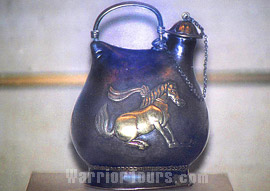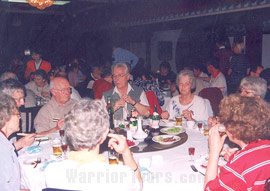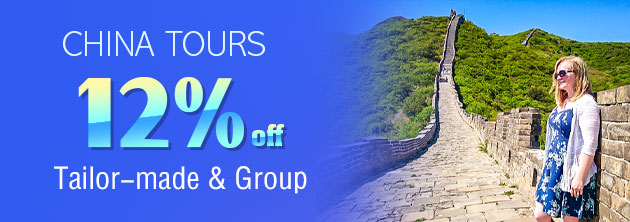Alcohol and Social Activities

![]() Alcohol and arts
Alcohol and arts
Alcohol had great impact on Chinese artists than any other ones, since many of them produced their peak-of-perfection masterpieces drunken, right after drinking. Being drunk and into the state of free production was and is the important tip Chinese artists resort to free their artistic creativity. Many famous poets, such as Li Bai and Du Fu, had excellent performance and left us surprisingly marvelous poems after drinking the mysterious liquid. Not only poem but also painting and calligraphy were raised to higher level by the aid of alcohol. Wang Xizhi, Chinese famous calligrapher respectfully called Calligraphy Saint, retried dozens of times to overwhelm his most outstanding work, Lantingxu (Orchid Pavilion Prologue) which was finished when he was drunken, and he failed. The original one was the best.
![]() Alcohol and health
Alcohol and health
Chinese people do believe that moderate drinking of alcohol is good to health and excessive drinking will jeopardize physical constitution. As a result, few Chinese, although there are some, will cling to bottles. However, many Chinese do sip a little alcoholic beverage at intervals to keep them fresh and healthy. Some even soak traditional Chinese medicine into liquor to achieve better effect, which was proved to be successful.

![]() Alcohol and sociality
Alcohol and sociality
In China, alcohol has internal connection with sociality. Drinking provides more chances for one to make more friends as the old saying says, "Frequent drinking makes friends surrounding". Moreover, alcohol also serves effectively to deepen and strengthen friendship. Since it shows one's friendliness alcohol is always used to relieve misunderstanding and hatred which no matter how strong is.
![]() Alcohol and business
Alcohol and business
Banquet, is the place where businessmen hunt business chance and slightest rip and change can be discovered and their rivals' business information may be on your hand and help you take the rein, thus greet your success. Certainly, banquet will form, strengthen and consolidate business partnership and alcohol, of course, plays a very important role.
![]() Alcohol and entertainment
Alcohol and entertainment
Most people have alcohol just for entertainment. It is used to add to the fun during festive times to highlight the happy and exciting moment due to its inciting effect. Surrounding tables and playing drinking games, with glass clinking, people will soar up both physically and mentally. Unfortunately, there are always some drunk after too much consumption.
![]() Alcohol and military
Alcohol and military
In the vicissitudes of dynasties, wars followed all the way. Alcohol was the only entertainment of the military in the time of cold weapons. It was used as stimulants and rewards for the army men. The stimulating agent can make cowards brave and stir up the exhausted and heighten the morale of the army. Therefore it was the most important and effective material resorted to raise morale before and in the campaign and reward the triumphant military after. According to history records, in the Warring States period, Qin Mugong of the Qing kingdom, poured the insufficient liquor into the Yellow River and drunk with his soldiers. There were many stories like this, and generals who did this always won their wars. In historical novels, alcohol and battles frequently cohabited. Such as in The Romance of the Three Kingdoms, Guan Yu, the Chinese Ares, chopped Hua Xiong's head off while his wine was still warm; Zhang Fei, pretending drunk, captured his enemy's fortress easily. In the novel, almost every chapter associates with alcohol.
![]() Alcohol and its use in China
Alcohol and its use in China
Sacrifice ceremony - first and still remaining use of alcohol to show respect to ancestors and gods.
Warrior foy - Chinese usually will toast for their warriors' victory before their departure.
Triumph celebration - military tradition held after victory.
Banquet - alcohol appears on the state banquet, business banquet and family feast.
Cold resisting - Chinese people have used it to resist cold for thousands years.

